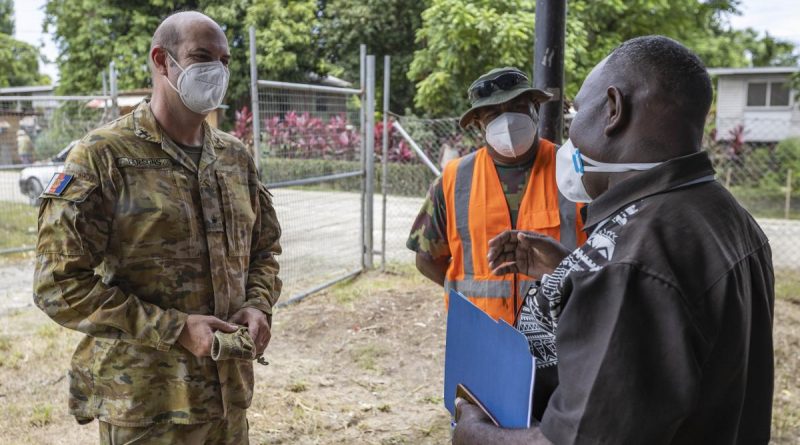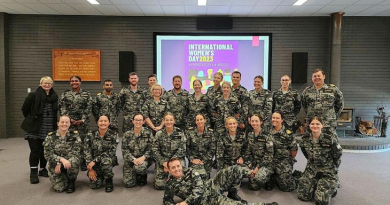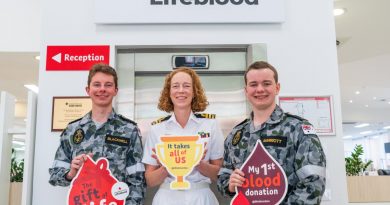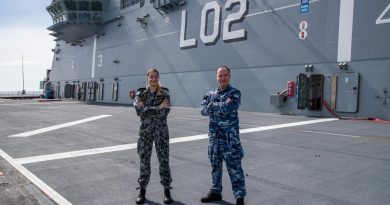Chaplain helps Solomon Islands communities during lockdowns
Share the post "Chaplain helps Solomon Islands communities during lockdowns"

As COVID-19 took hold in Solomon Islands, public gatherings, including religious services, ground to a halt, making the role of the chaplain assigned to Operation Lilia all the more challenging.
CAPTION: Chaplain Haydn Parsons talks with Republic of Fijian Military Forces soldier Staff Sergeant Eliki Seasea, centre, and Pastor Martin Nehemiah at Burns Creek Clinic in Solomon Islands. Story by Captain Peter March. Photo by Corporal Jarrod McAneney.
The Pacific nation, of which 92 per cent of the population identify as Christian, would typically allow for Defence chaplains to connect with local religious leaders and groups during mass and other community events.
Though not mission impossible, the recent COVID-19 outbreak has certainly made the job more difficult for Australian Army Chaplain Haydn Parsons.
“It’s changed the way we go about things,” Chaplain Parsons said.
“COVID has unfortunately prevented engagement with larger community bodies across Solomon Islands. For example, I’m unable to meet people on a Sunday at a church.
“However, I can still meet one-on-one with church leaders and other individuals, allowing me to offer my empathy and support.”
While the original contingent of Australian Defence Force personnel deployed at the request of the Solomon Islands Government to help stabilise public unrest in Honiara did not include a chaplain, Chaplain Parsons is eager to make the most of his deployment.
“COVID-19 has affected communities in Solomon Islands in a very big way,” Chaplain Parsons said.
“The culture here is very family orientated so, for instance, when severe limits are put on the number of people who can gather for a funeral; that has really hurt.
“When the COVID restrictions lift and the situation is deemed safe and appropriate, the ADF will then engage and be there to support the local community.”
.
.

.
.
Share the post "Chaplain helps Solomon Islands communities during lockdowns"





